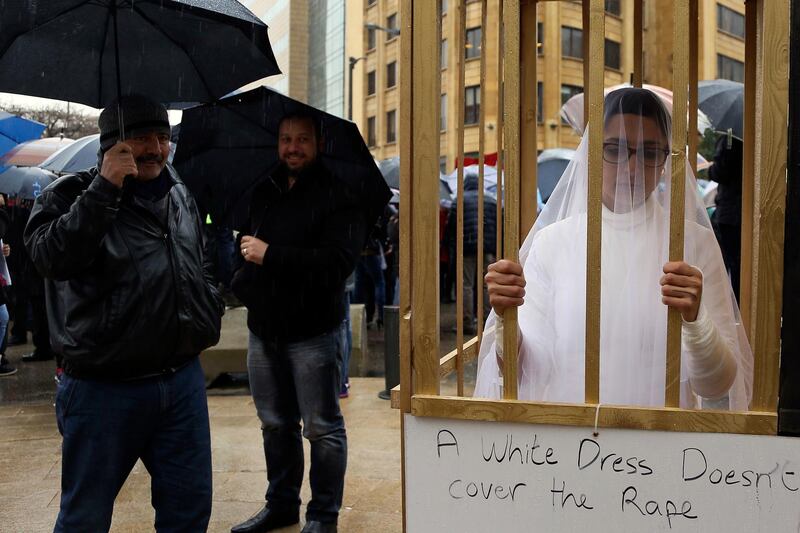Lebanon’s parliament on Wednesday abolished a law which allowed convicted rapists to avoid punishment by marrying their victims.
“The repeal of article 522 is an important and overdue step to protect women’s rights in Lebanon,” said Bassam Khawaja, the Lebanon researcher at Human Rights Watch.
“Parliament should now follow this up by passing pending legislation to end child marriage and marital rape, both of which are still legal in Lebanon.”
Lebanese activists campaigned for years to change the law, in place since the 1940s, which created a loophole for statutory rape and kidnapping convictions.
“This was a great victory for not just all women, but everyone residing in Lebanon. It’s a small step, but a great victory in achieving gender equality,” said Saja Michaels, a member of Abaad, a civil society organisation that takes on issues of gender equality.
---------------------------------
Read more:
[ Lebanon activists ramp up pressure on MPs over rape law with dramatic installation ]
[ Lebanon one step closer to repealing controversial rape law ]
---------------------------------
Abaad launched a campaign last year to repeal the law. The move had been expected since earlier this year after public figures, including prime minister Saad Hariri, expressed support for it.
But Ms Michaels, who runs Abaad’s Sexualities and Sexual Reproductive Health and Rights programme, said the group would continue working with communities at the grassroots level.
“Policy change is very important, but if this policy is not being implemented it’s not enough,” Ms Michaels said.
“Education is part of it, but also changing the honour culture relating to sexual violence, and the way families and communities are involved. Often the first impulse is to preserve the honour of the girl and the honour of the family” through marriage.
The lower house of Jordan's parliament voted to scrap a similar law earlier this month.
Some MPs had argued that an amended version of Article 308 was needed to protect rape victims against social stigma by giving them the marriage option.
But in the end, lawmakers voted in line with the recommendations of the government and a royal committee on legal reforms, to repeal the law.
* additional reporting from Associated Press





